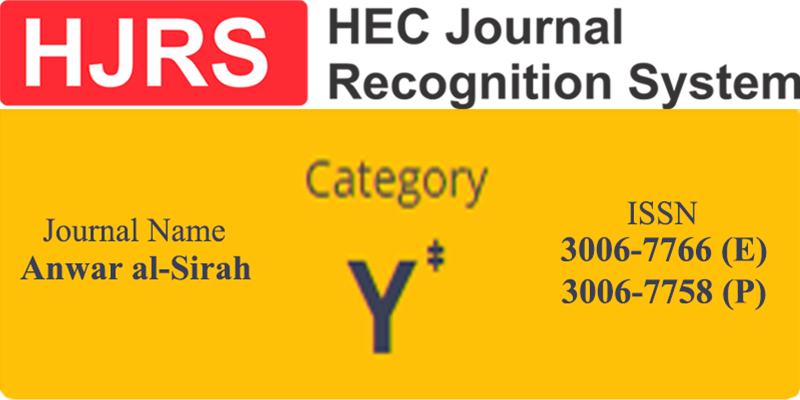خطبہ حجۃ الوداع کا مصداق، انسانی حقوق سے متعلق مضامین کی قرآنی تائید اور انسانی تاریخ کی روشنی میں سماج پر اس کے اثرات کا علمی جائزہ
An Analytical Study of the Farewell Sermon as a Source of Human Rights: Its Quranic Endorsement and Societal Impacts in the Light of Human History
Keywords:
Farewell Sermon, Human Rights in Islam, Islamic Law, Secular Law, Hudood, Qisas, Apostasy Punishment, Seerah Studies, Islamic Jurisprudence, Hadith Analysis, Shariah and Human Rights, Sources of Islamic LawAbstract
This research examines the varying narrations regarding the Farewell Sermon (Khutbah Hajjatul Wida') of the Rasool ﷺ, where different locations and days are mentioned — such as the day before Yawm al-Tarwiyah, Yawm al-Arafah, Yawm al-Nahr, and the middle days of Tashreeq. A critical evaluation of these traditions reveals that the Farewell Sermon is best understood as a "comprehensive set of instructions" delivered during the Prophet’s final pilgrimage. Although many hadith scholars, biographers, and historians have recorded narrations related to the Farewell Sermon, their accounts include weak, unauthenticated, and historically inaccurate reports — some of which pertain to earlier events yet are mistakenly associated with the Farewell Pilgrimage. In this research, only authentic and widely accepted narrations from reputable hadith and Seerah sources have been selected, focusing exclusively on the human rights aspects presented within the sermon. Given the global discourse on human rights, it is crucial to address certain areas where Islamic legal principles are often perceived to conflict with modern human rights frameworks — such as punishments for apostasy, consensual adultery, and the implementation of Hudood and Qisas laws. This divergence primarily stems from the difference in sources: secular laws are rooted in materialism, absolute rationalism, and societal desires, whereas Islamic Shariah is founded upon divine revelation, scholarly consensus, the objectives of Shariah, sound intellect, and recognized Islamic customs. This study aims to highlight the distinct philosophical bases underlying Islamic and secular conceptions of human rights.
Downloads
Published
How to Cite
Issue
Section
License
Copyright (c) 2025 Dr. Javed Iqbal, Dr. Fakhar-ul-Islam

This work is licensed under a Creative Commons Attribution-NonCommercial 4.0 International License.
Copyrights of all research papers published in Journal of the 'ANWĀR AL-SĪRAH are held by the auther(s). However, as the 'ANWĀR AL-SĪRAH follows Open Access Policy under license CC by NC for global exchange of knowledge, readers are freely allowed to download, read and print the full text papers of 'ANWĀR AL-SĪRAH without prior permission from the 'ANWĀR AL-SĪRAH or the author(s) as long as they acknowledge/cite the 'ANWĀR AL-SĪRAH as the original source.

